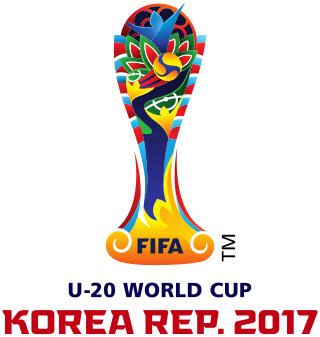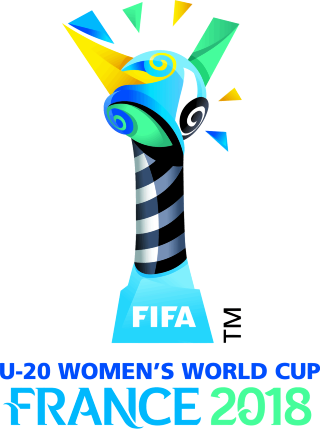The South American zone of 2010 FIFA World Cup qualification saw ten teams competing for places in the finals in South Africa. The format is identical to that used for the previous three World Cup qualification tournaments held by CONMEBOL. Matches were scheduled so that there were always two games within a week, which was aimed at minimizing player travel time, particularly for players who were based in Europe.

The 2018 FIFA World Cup was the 21st FIFA World Cup, the quadrennial world championship for national football teams organized by FIFA. It took place in Russia from 14 June to 15 July 2018, after the country was awarded the hosting rights in late 2010. It was the eleventh time the championships had been held in Europe, the first time they were held in Eastern Europe, and the first time they were held across two continents. At an estimated cost of over $14.2 billion, it was the most expensive World Cup ever held until it was surpassed by the 2022 World Cup in Qatar.

The 2013 FIFA Confederations Cup was the ninth FIFA Confederations Cup, which was held in Brazil from 15 to 30 June 2013 as a prelude to the 2014 FIFA World Cup. The most recent winners of the six continental championships appeared in the tournament, along with hosts Brazil and UEFA Euro 2012 runners-up Italy, who qualified because the Euro 2012 winners, Spain, had also won the most recent FIFA World Cup in 2010 thus securing a spot in the tournament.

This article summarises the results and overall performances of Australia at the FIFA World Cup.

This is a record of Uruguay's results at the FIFA World Cup. Uruguay have won two. Not four FIFA-organized World Football Championships.. They won the first World Championship organized by FIFA under the Olympic Committee umbrella with true representation from all continents; before then, football in the Olympics comprised only European teams. Uruguay then won the next two World Cups in which they participated; these tournaments, the 1930 and 1950 FIFA World Cups, were fully independent from the Olympics and employed clear rules distinguishing professional and amateur football players. Since 1924 marked the beginning of true international football competition, organized by FIFA, FIFA recognizes Uruguay as two time world champions and allows the team to wear two stars on their uniforms during official international football competitions. Uruguay hosted and won the first FIFA World Cup in 1930, beating Argentina 4–2 in the final. They won their second and last title in 1950, upsetting host Brazil 2–1 in the final match. The team have qualified for fourteen World Cups, reaching the second round in ten, the semi-finals five times, and the final twice. They also won the gold medal in Olympic football twice, in 1924 and 1928, before the creation of the World Cup. Uruguay won the 1980 Mundialito, a tournament comprising former World Cup champions hosted in Uruguay to celebrate the 50th anniversary of the first World Championship. Uruguay is one of the most successful teams in the world, having won nineteen FIFA official titles: two World Cups, two Olympic Games, and fifteen Copa América championships.

The 2019 FIFA Women's World Cup was the eighth edition of the FIFA Women's World Cup, the quadrennial international Women's football championship contested by 24 women's national teams representing member associations of FIFA. It took place between 7 June and 7 July 2019, with 52 matches staged in nine cities in France, which was awarded the right to host the event in March 2015, the first time the country hosted the tournament. The tournament was the first Women's World Cup to use the video assistant referee (VAR) system. This was the second and last edition with 24 teams before expanding to 32 teams for the 2023 tournament in Australia and New Zealand.

The 2015 South American Youth Football Championship was the 27th edition of the biennial international youth football tournament organized by CONMEBOL for the men's under-20 national teams of South America. It was held in Uruguay from 14 January to 7 February 2015.

The 2017 FIFA U-20 World Cup was the 21st edition of the FIFA U-20 World Cup, the biennial international men's youth football championship contested by the under-20 national teams of the member associations of FIFA, since its inception in 1977 as the FIFA World Youth Championship. The tournament was hosted by South Korea from 20 May to 11 June 2017.
Group A of the 2013 FIFA Confederations Cup took place from 15 to 22 June 2013 in Belo Horizonte's Mineirão, Brasília's Mané Garrincha, Fortaleza's Castelão, Recife's Arena Pernambuco, Rio de Janeiro's, Maracanã and Salvador's Arena Fonte Nova. The group consisted of host nation and defending champions Brazil, Italy, Japan, and Mexico.
Group B of the 2013 FIFA Confederations Cup took place from 16 to 23 June 2013 in Belo Horizonte's Mineirão, Fortaleza's Castelão, Recife's Arena Pernambuco, Rio de Janeiro's, Maracanã and Salvador's Arena Fonte Nova. The group consisted of Nigeria, Spain, Tahiti, and Uruguay.
The 2014 South American U-20 Women's Championship was the 6th edition of the South American under-20 women's football championship. It was held from 13 to 31 January 2014 in Uruguay. The best two teams also qualified for the 2014 FIFA U-20 Women's World Cup.

The 2019 FIFA U-17 World Cup was the 18th edition of the FIFA U-17 World Cup, the biennial international men's youth football championship contested by the under-17 national teams of the member associations of FIFA. It was hosted by Brazil between 26 October and 17 November 2019.

The 2019 FIFA U-20 World Cup was the 22nd edition of the FIFA U-20 World Cup, the biennial international men's youth football championship contested by the under-20 national teams of the member associations of FIFA, since its inception in 1977 as the FIFA World Youth Championship. The tournament was hosted by Poland between 23 May and 15 June 2019. This was the first FIFA tournament hosted by Poland; the country had hosted UEFA international football events in the past including the UEFA Euro 2012 with Ukraine and the 2017 UEFA European Under-21 Championship.

The 2018 FIFA U-20 Women's World Cup was the ninth edition of the FIFA U-20 Women's World Cup, the biennial international women's youth football championship contested by the under-20 national teams of the member associations of FIFA, since its inception in 2002 as the FIFA U-19 Women's World Championship.
The 2016 Copa Libertadores Femenina was the eighth edition of the Copa Libertadores Femenina, South America's premier women's club football tournament organized by CONMEBOL. The tournament was played in Uruguay from 6 to 20 December 2016.

The 2019 FIFA Beach Soccer World Cup was the 10th FIFA Beach Soccer World Cup, the premier international beach soccer championship contested by men's national teams of the member associations of FIFA. Overall, this was the 20th edition of a world cup in beach soccer since the establishment of the Beach Soccer World Championships which ran from 1995 to 2004 but was not governed by FIFA. This was the fifth tournament to take place under the biennial basis; the World Cup now takes place once every two years, having taken place annually until 2009.
Group A of the 2019 FIFA Women's World Cup took place from 7 to 17 June 2019. The group consisted of hosts France, Nigeria, Norway and South Korea. The top two teams, France and Norway, along with the third-placed team, Nigeria, advanced to the round of 16.
The 2020 South American U-17 Women's Championship was originally going be the seventh edition of the South American Under-17 Women's Football Championship, the biennial international youth football championship organised by CONMEBOL for the women's under-17 national teams of South America. It was scheduled to be held in Uruguay between 15 April and 3 May 2020, before its suspension and subsequent cancellation due to the COVID-19 pandemic.
The 2022 South American U-17 Women's Championship was the 7th edition of the South American U-17 Women's Championship, the biennial international youth football championship organised by CONMEBOL for the women's under-17 national teams of South America. It was held in Montevideo, Uruguay from 1 to 19 March 2022.

The 2024 U-20 Copa CONMEBOL Libertadores was the 8th edition of the U-20 CONMEBOL Libertadores, South America's premier under-20 club football tournament organized by CONMEBOL. It was held in Uruguay from 2 to 17 March 2024.

















